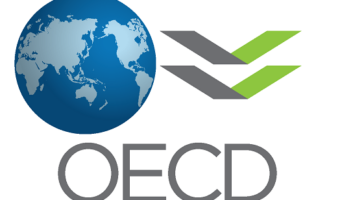Poland has achieved impressive economic progress over recent years and has proven remarkably resilient to the world economic and financial crisis. The challenge is now to move towards a production structure based on higher technologies and skills to continue the catch up with living standards in other OECD economies. The OECD Economic Survey discusses policies to improve infrastructure investment and management and the use of skills in the Polish economy to foster productivity growth and well-being in the context of rapidly mounting demographic pressures. It discusses the role of the new government’s policies and what needs to be done to ensure sustainable public and private financing to achieve these goals. On March 23, there was held seminar presenting newly-published 2016 OECD Economic Survey for Poland. The report was presented by Nicola Brandt from OECD. Piotr Lewandowski (Institute for Structural Research) and Michał Wolański (Warsaw School of Economics) delivered comments to the report. The seminar was attended by over 30 guests. The organizer of the event was the Institute for Structural Research. Nicola Brandt focused on several key areas:
- sustainability of public finances,
- skills development for the labour market and
- improvement of infrastructure investment.
Regarding public finance, the report recommends Poland to give up reduced VAT tax rates. Reduced VAT rates significantly deplete budget revenues and encourage tax evasion. At the same time reduced VAT rates poorly perform as a redistributive policy instrument. Referring to the labor market, Nicola Brandt pointed out that Poland must cope with little developed caring institutions for the young children as well as the elderly. Moreover, she discussed the need of improving workers’ skills, especially language and computer ones. Poland does not have a comprehensive system of continuing education for adults outside typical education age. She stressed the need for new investment in transport infrastructure (railways) and energy (interconnections with neighbouring countries). Piotr Lewandowski (IBS) highlighted the role of education. According to him, Poland must reduce disparities in education quality between different types of secondary schools. At tertiary education level, Poland significantly lags behind other developed countries in terms of the structure of fields of education: there are too many students of social sciences, humanities and pedagogy, and too little of technical and health-related studies. Michael Wolański (SGH) referred to the growing phenomenon of urban sprawl that exacerbates traffic congestion and air pollution. Despite the observed government’s shift from road to railroad infrastructure, the improvement has been slow. The system of public transportion in many areas, especially rural ones, is underdeveloped, making it hard to commute to work or school. You can find the full version of the report at OECD website: http://www.oecd.org/poland/economic-survey-poland.htm
- 10:30 – 11:15Presentation of OECD Economic Survey of Poland 2016 by Nicola Brandt & Antoine Goujard (OECD)
- 11:15 – 11:30Comments by Piotr Lewandowski (IBS) & Michał Wolański (Warsaw School of Economics)
- 11:30 – 12:30Discussion with the audience
- 12:30 – 13:30Lunch
 IBSOECD-Economic-Survey-of-Poland-23.03.16.pdf
IBSOECD-Economic-Survey-of-Poland-23.03.16.pdf
 Poland_2016_OECD_Economic_Survey_Investing_in_infrastructure_and_skills_Warsaw_22_March_2016-1.pdf
Poland_2016_OECD_Economic_Survey_Investing_in_infrastructure_and_skills_Warsaw_22_March_2016-1.pdf
 Lewandowski_Comments_on_OECD_ESoPoland-1.pdf
Lewandowski_Comments_on_OECD_ESoPoland-1.pdf
 Wolanski_Comment_on_transport-infrastructure_conclusions_and_recommendations-1.pdf
Wolanski_Comment_on_transport-infrastructure_conclusions_and_recommendations-1.pdf


